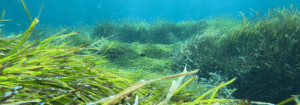
Grants
Sea
OBSAM-IME | Posidonia monitoring 2025
5,810 € awarded
TOTAL PROJECT COST – €12,530
IN PROGRESS
- Organisation Applying for Funding: OBSAM-IME
- Project Duration: June 2025 to December 2025
- Area of Interest: Sea
- Other organisations involved: TRAGSATEC, GOB Menorca, Instituto Balear de la Natura.
Project Summary:
The “Monitoring of Posidonia oceanica meadows – 2025” continues a long-term biennial study initiated in 2004. This phase involves the sampling of six stations across Menorca’s coastline to assess the conservation status of Posidonia meadows. The data collected will contribute to a robust statistical series used for bioindicator analysis and management decisions aligned with the Posidonia Decree and Biosphere Reserve framework. The study also focuses on identifying Pinna nobilis survivors (a critically endangered species) and detecting invasive species.
Main Objectives:
The project has two primary goals:
- Evaluate the conservation status of Posidonia oceanica meadows in Menorca.
- Strengthen collaboration between regional stakeholders managing the marine environment.
Specific objectives for 2025 include:
- Continue the monitoring network and begin the 2025–2026 sampling cycle.
- Sample 6 established monitoring stations, covering upper, middle, and lower depths.
- Identify surviving Pinna nobilis specimens.
- Extend the statistical data series for bioindicator analysis.
- Detect sensitive areas and ecological imbalances.
Expected results:
Environmental outcomes include:
- One additional year of monitoring data to strengthen the long-term dataset.
- A comprehensive technical report analyzing trends, density, cover, and presence of species.
- Integration of Menorca’s data into the broader Balearic Sea Report.
- Upload of all collected data to the Balearic Government’s marine environment database.
Social, economic and/or political outcomes:
- Provide reliable data for policy makers, researchers, and protected area managers.
- Foster collaboration among public institutions, NGOs, and local governments.
- Promote capacity building through the involvement of marine scientists and technical staff.
- Support evidence-based environmental management and policy.
- Encourage regional coordination across the Balearic Islands through shared data and indicators.
Project Legacy:
Since 2004, this project has created a valuable baseline for Posidonia meadow monitoring. The continued sampling in 2025 and planned follow-up in 2026 aim to ensure long-term ecological tracking. Data will inform protection strategies and feed into a regional conservation indicator for the Balearic Islands. OBSAM and its collaborators intend to maintain and expand this dataset, enabling effective marine management for years to come.